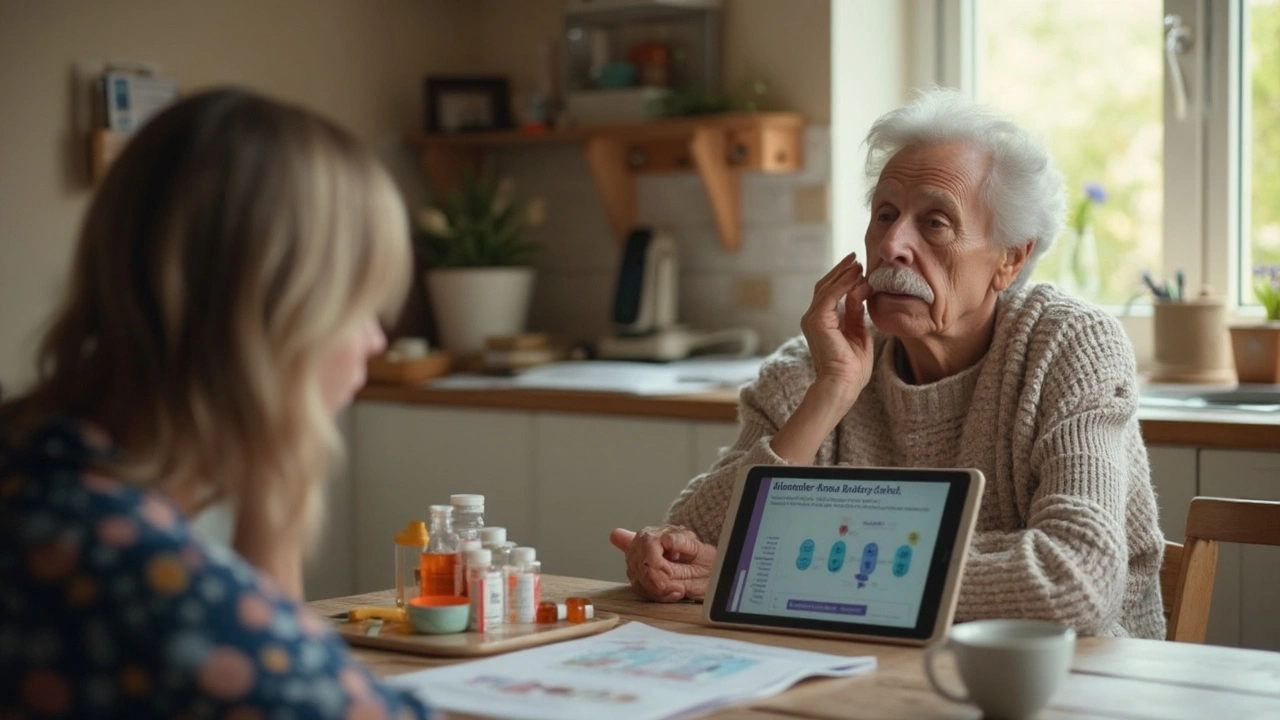Alzheimer's Alternatives – Real Options You Can Try
If you or a loved one are dealing with early memory loss, the word "Alzheimer's" can feel overwhelming. The good news? There are several alternatives to classic prescription drugs that can help slow symptoms and improve quality of life. Below we break down practical steps you can start today without waiting for another doctor’s appointment.
Lifestyle and Diet Changes That Matter
First off, everyday habits have a bigger impact than most people think. Regular aerobic exercise—think brisk walking, cycling, or swimming—for at least 30 minutes three times a week boosts blood flow to the brain and supports new neuron growth. Pair that with strength training twice a week to keep muscles strong and reduce fall risk.
When it comes to food, the Mediterranean diet tops most lists for cognitive health. Load your plate with leafy greens, fatty fish like salmon, nuts, olive oil, and berries. These foods supply omega‑3s, antioxidants, and polyphenols that protect brain cells from damage. Cutting back on refined sugars and processed snacks also helps keep insulin spikes in check, which is linked to better memory performance.
Sleep isn’t optional either. Aim for 7–9 hours of uninterrupted rest each night. Poor sleep can increase beta‑amyloid buildup, a protein tied to Alzheimer’s progression. If you struggle with insomnia, try a bedtime routine: dim lights, no screens an hour before bed, and perhaps a short meditation session.
Supplements & Emerging Therapies
Beyond diet, a handful of over‑the‑counter supplements have shown promise in small studies. DHA (a type of omega‑3) at 1,000 mg daily may help maintain membrane fluidity in brain cells. Curcumin, the active compound in turmeric, has anti‑inflammatory properties; a bioavailable form taken with black pepper extract can improve absorption.
Vitamin D deficiency is common in older adults and linked to faster cognitive decline. A simple blood test can tell you if you need a boost—usually 1,000–2,000 IU daily for most seniors. B‑complex vitamins, especially B12 and folate, support nerve health; deficiencies often manifest as memory fog.
For those looking at more experimental routes, clinical trials for monoclonal antibodies like aducanumab are ongoing. While these treatments require specialist oversight, signing up for a trial can give access to cutting‑edge care and contribute to research.
Another emerging field is brain‑training apps that use adaptive algorithms to challenge memory, attention, and problem‑solving skills. Studies suggest regular sessions (15–20 minutes daily) can modestly improve test scores, especially when combined with physical activity.
Finally, consider social engagement. Joining a book club, volunteering, or even regular video calls with family keeps the brain active and reduces depression—a known risk factor for faster decline.
Putting these alternatives together creates a layered approach: diet fuels the body, exercise powers blood flow, sleep clears out toxins, supplements fill nutritional gaps, and mental activity keeps neural pathways sharp. No single trick will halt Alzheimer’s on its own, but the combination can slow progression and boost day‑to‑day functioning.
Ready to start? Pick one lifestyle habit—like a daily walk or adding salmon to dinner—and stick with it for a month. Then add a supplement if you feel comfortable, and watch how your energy and memory respond. Small steps add up, and the best part is you control them.
8 Aducanumab Alternatives: What Else is Out There for Alzheimer's?
Confused by the options beyond Aducanumab for Alzheimer's? This article breaks down eight alternatives, from experimental drugs to currently available treatments. Each option gets compared side by side for how well it works, how it's taken, and what people have actually experienced. You'll find helpful details and clear pros and cons for each, including why some promising ideas just didn’t pan out. It's practical, candid, and tailored for anyone wondering what’s really out there besides Aducanumab.
